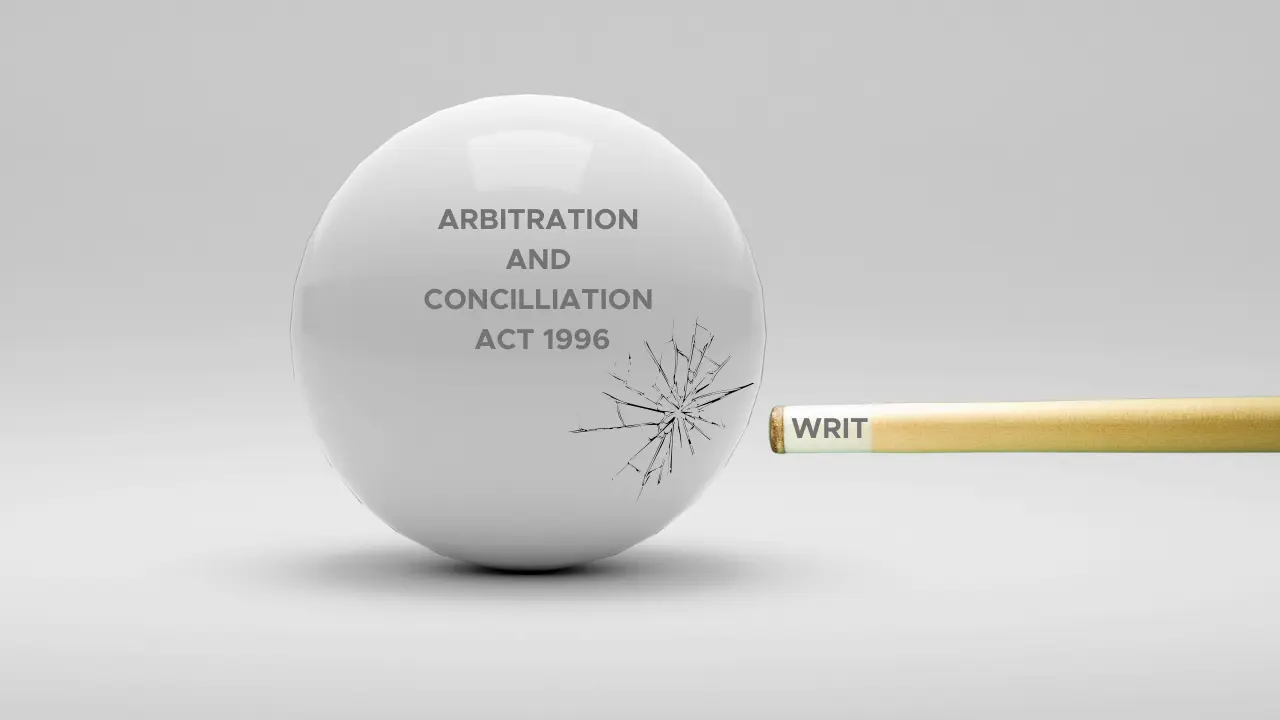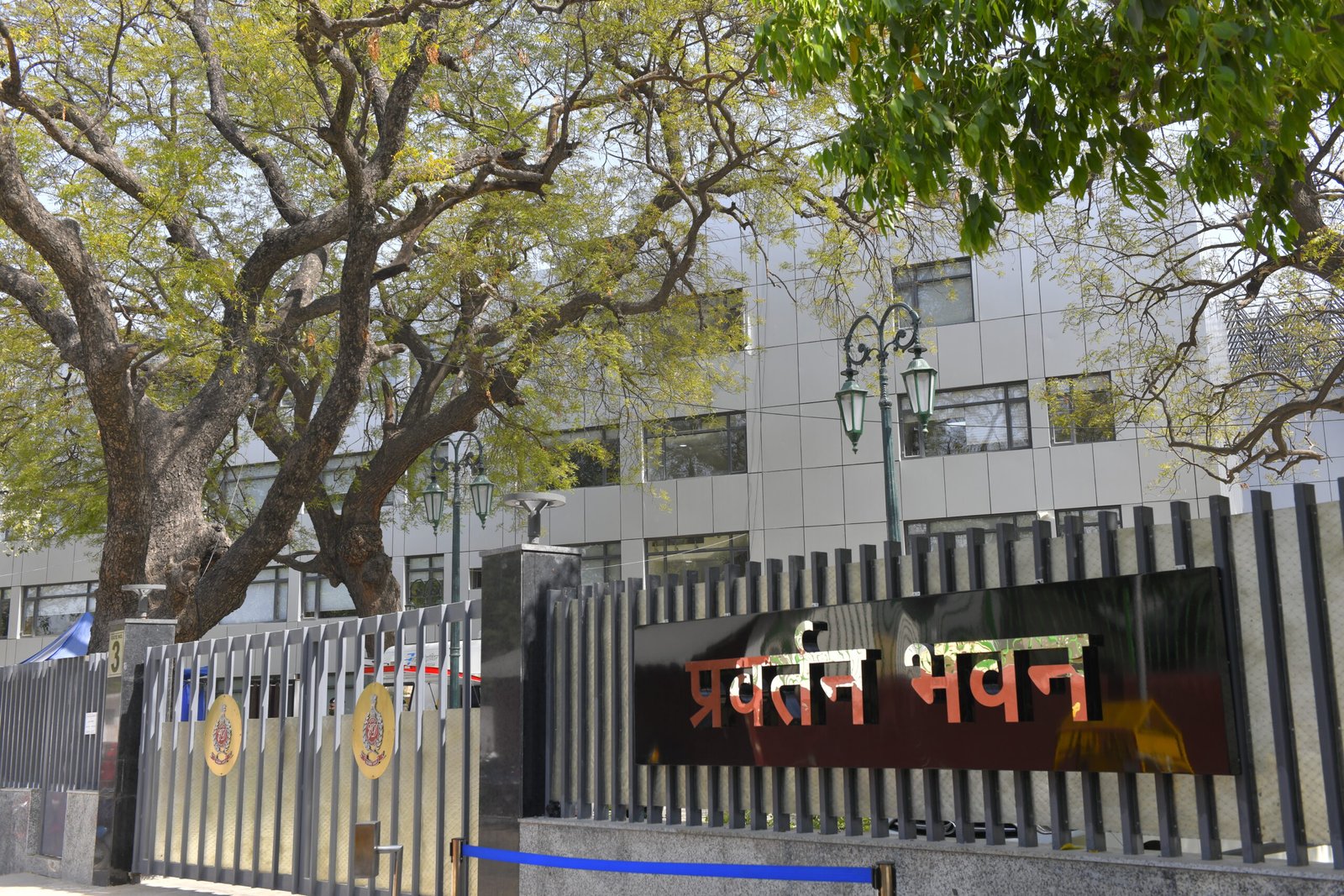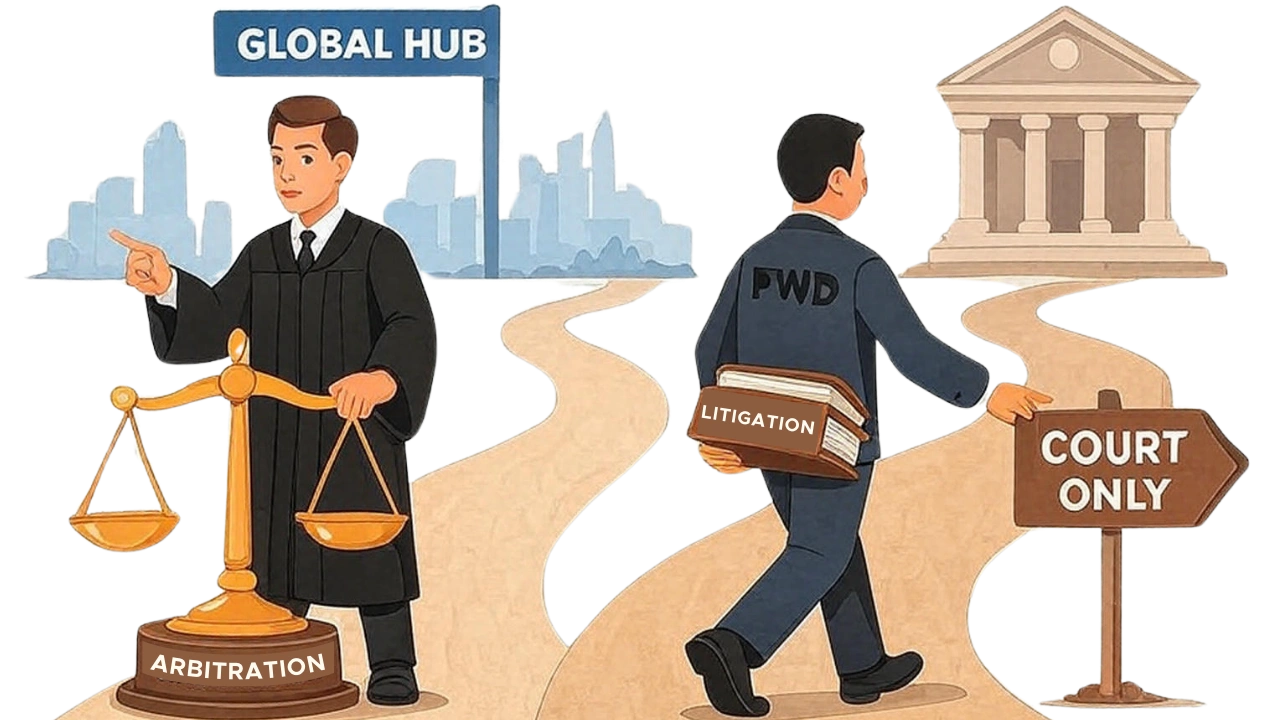In this article we have analysed whether writ jurisdiction can be exercised against orders arising out of the Arbitration Act. We will first examine the objective of the Arbitration Act, followed by an analysis of whether a writ petition is maintainable given the self-contained nature of the Act. Finally, we will discuss the circumstances under which the court can intervene if the writ petition is deemed maintainable.
Introduction
The Arbitration Act is a self-contained code that covers everything from the constitution of the Arbitral Tribunal to the procedure for challenging an award passed by such a tribunal. The idea behind including all provisions within the Act itself was to minimize judicial interference in the proceedings under the Act, ensuring that disputes referred to Arbitration could be resolved quickly and efficiently.
Section 5 of the Act further provides that, notwithstanding anything contained in any other law for the time being in force, no judicial authority shall interfere with matters governed by Part I of the Act except where specifically permitted. This section, along with other provisions like Sections 29A and 34—which set timelines for proceedings initiated under the Act—clearly demonstrates that the primary objective of the Act is to provide a swift alternative to the cumbersome and overburdened traditional court system, where parties often face prolonged delays in resolving their disputes.
Writ Jurisdiction
The Supreme Court and High Courts have been entrusted with the solemn responsibility of enforcing fundamental rights whenever they are infringed by the state or its instrumentalities. While the jurisdiction of the Supreme Court in issuing writs is confined to enforcing fundamental rights, the High Court can issue writs not only for the enforcement of fundamental rights but also for other rights. Given that the scope of the High Court’s writ jurisdiction is broader, the question arises: Can such a power be curtailed? And if not, can it be exercised in a way that bypasses or overrides a statutory mechanism designed for addressing grievances?
The Supreme Court in L. Chandra Kumar v. Union of India1 held that while the power of judicial review, being a basic feature of the Constitution, cannot be curtailed or abridged by any legislation, when an effective alternative remedy is provided under a statutory framework for addressing grievances, writ petitions against orders or judgments arising from such statutes should not be routinely entertained.
Similarly, the Supreme Court in Thansingh Nathmal v. Superintendent of Taxes2 held that “the High Court does not therefore act as a court of appeal against the decision of a court or tribunal, to correct errors of fact, and does not by assuming jurisdiction under Article 226 trench upon an alternative remedy provided by statute for obtaining relief.”
Patent Lack Of Inherent Jurisdiction Test- Deep Industries and Punjab State Power Corporation Limited
In light of this statutory framework, a key issue arises: Can the writ jurisdiction under Articles 226 and 227 of the Indian Constitution be exercised against orders passed under the Arbitration Act? This question came before the Supreme Court in Deep Industries Limited vs ONGC3, where the Court considered whether a writ petition under Articles 226 and 227 could be maintained against an order passed under Section 37 of the Arbitration Act. Referring to the scheme of the Act, the Court held that allowing writ jurisdiction against orders passed under Section 37 would defeat the purpose of the Act and hinder effective dispute resolution.
It further observed that however, it is also well established that Articles 226 and 227, being constitutional provisions, remain untouched by statutory limitations. The constitutional power of judicial review cannot be curtailed by any statute. The dilemma, therefore, lies in balancing these competing interests. The Court held that, while High Courts should generally be circumspect in interfering with arbitral proceedings, their extraordinary writ jurisdiction can still be exercised in cases where an order suffers from a patent lack of inherent jurisdiction.
The Supreme Court, while further elaborating on the phrase “patent lack of inherent jurisdiction” in Punjab State Power Corporation Limited vs. Emta Coal Limited4, held that a writ under Article 226 is maintainable only when the order passed by the Arbitral Tribunal is so perverse that the only possible conclusion is a patent lack of inherent jurisdiction.
The Supreme Court in SBP & Co. vs. Patel Engineering Ltd. & Another5 observed that the object of minimizing judicial intervention while the matter is in the process of being arbitrated upon, will certainly be defeated if the High Court could be approached under Article 227 or under Article 226 of the Constitution against every order made by the arbitral tribunal. Therefore, it is necessary to indicate that once the arbitration has commenced in the arbitral tribunal, parties have to wait until the award is pronounced unless, of course, a right of appeal is available to them under Section 37 of the Act even at an earlier stage
Exceptional Rarity Or Bad Faith Test- Bhaven Construction
The Supreme Court, in Bhaven Construction vs. Executive Engineer, Sardar Sarovar Narmada6, while setting aside the order passed by the Gujarat High Court, held that a writ petition against an arbitral award can be entertained under Articles 226/227 only in cases of exceptional rarity or when bad faith is demonstrated on part of one of the parties. The Court further elaborated that the word only in Section 34 serves two purposes—first, it establishes the Act as a complete code, and second, it prescribes the exclusive procedure for challenging an arbitral award.
Writ Jurisdiction Is Not Barred- Unitech Limited and Uttar Pradesh Power Transmission Corp. Ltd.
The next issue is whether the jurisdiction of the High Court under Article 226 is ousted merely because the dispute pertains to the contractual arena. This issue was addressed by the Supreme Court in Unitech Limited & Ors. v. Telangana State Industrial Infrastructure Corporation7 where it was held that “it is well-settled that the jurisdiction under Article 226 cannot be ousted only on the basis that the dispute pertains to the contractual arena. This is for the simple reason that the State and its instrumentalities are not exempt from the duty to act fairly merely because in their business dealings they have entered into the realm of contract.”
The Court also observed that the writ jurisdiction of the High Court is not ousted merely because an arbitration clause exists.However the court further said that it needs to be decided on a case to case basis as to whether recourse to public law remedy is really warranted.
Similarly, the Supreme Court in Uttar Pradesh Power Transmission Corp. Ltd. v. CG Power and Industrial Solutions Ltd8., held that the existence of an arbitration clause does not debar the court from entertaining a writ petition.
The court further elaborated that it is well settled that availability of an alternative remedy does not prohibit the High Court from entertaining a writ petition in an appropriate case. The High Court may entertain a writ petition, notwithstanding the availability of an alternative remedy, particularly (1) where the writ petition seeks enforcement of a fundamental right; (ii) where there is failure of principles of natural justice or (iii) where the impugned orders or proceedings are wholly without jurisdiction or (iv) the vires of an Act is under challenge.
Recent Development
Recently, the Supreme Court in M/s Tamil Nadu Cements Corporation Limited v. Micro and Small Enterprises Facilitation Council and Another9 held that a writ petition against an award passed by the MSME Council can be entertained. The Court referred the matter to a larger bench to address the question of whether a writ against an award passed by the MSME Council can be entertained, especially in light of a contrary view expressed in M/s India Glycols Limited and Another v. Micro and Small Enterprises Facilitation Council10, where it was held that a writ is not maintainable against such an award, and only a petition under Section 34 of the Arbitration and Conciliation Act can be filed to challenge the award.
Conclusion
Although the Arbitration Act outlines a clear procedure for challenging an award passed by the Arbitral Tribunal, writ petitions under Articles 226/227 are not entirely barred. The High Court can entertain a writ petition only in exceptional circumstances, such as when an order passed by the Arbitrator suffers from a patent lack of inherent jurisdiction. While this issue appeared to be settled, the Supreme Court has revived the debate by referring the question of whether writ jurisdiction can be exercised against an award passed by the MSME Council to a larger bench. This reference is significant because, once an award is passed by the Council, provisions of the Arbitration Act apply for challenging it, particularly Section 34 of the Act. Seen in this background it will be interesting to see what the court ultimately decides.






